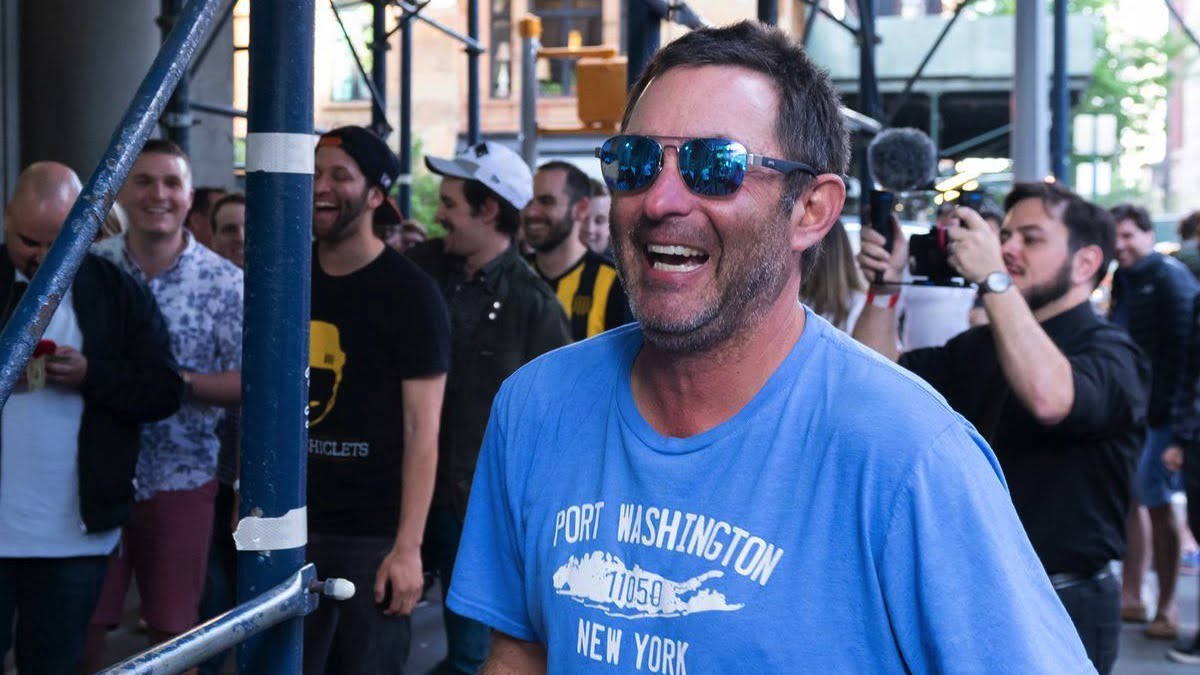I swear that I did not sign on to write a weekly column here to become a social media critic. Unfortunately, right now in media, social media — especially Twitter — is changing the fastest, creating the most dynamic storylines and impacting my life the most.
So, here we go.
X vs. Twitter vs. Me.
Usually, I start my work day anywhere from 4:30-4:45 am. I make coffee, shower (on most days), drive 20 minutes to the WTIC 1080 studios and finish researching for the day’s show which goes live at 5:30 am. Earlier this week, when in a matter of hours, Twitter owner Elon Musk went from teasing a Twitter brand change to actually doing it, I was checking my phone somewhere between the coffee and shower phases.
I consider myself one of the first people in America to experience it.
I didn’t like it.
To be honest, the X feed wasn’t even loading on my aging laptop once I got to the studio, and my phone still had the bird (yeah! – for two hours), but once I re-booted, the ominous 24th letter was right there, staring me in the phase, I mean face.
And how meta of the moment for X to also be trending.
In case you have not picked up on it, I’m old-school Twitter – someone on the site for 10 years or more and quite rhythmic in my usage. Couple that with my AARP-eligible age, perhaps, I’m not the target audience for the switch from blue bird to the Stanley Kubrick-esque X.
Too much. Too fast. And for too little reason.
The majority of responses to the change have been negative, yet those who hold faith in Musk say it’s the beginning of the end of Twitter as a news/information platform and the beginning of Twitter as the so-called everything app – social media, payments, video, crypto, messaging etc.
It’s something that’s worked overseas – China’s WeChat is often cited as an example – but hasn’t caught on here in the States.
Granted, for me, Twitter has always been about information, and I don’t care about crypto, shopping, or a new payment method. From that perspective of information-first, Twitter has been slipping for years, pre-dating Musk’s arrival, yet it’s been worse under his ownership. Seeing the X — didn’t it feel like a new fashion design “X … by Musk”? — on the masthead was something that did not excite me.
I was not alone.
Cronin is a Connecticut-based marketing/advertising/PR agency, and Katie Lukas is its Head of Strategy. I asked her a lot of questions about it.
“It could really go either way,” she said of the Twitter re-branding. “X feels like a bigger idea than Twitter, so you can see where he’s going with it, but the way he’s going about it is so capricious that it feels like re-branding by fiat rather than something that’s thoughtful or intentional.”
That one got me looking at the dictionary for both “capricious” and “fiat”, and suffice it to say, Ms. Lukas used them both splendidly well. It does seem like Musk went into the office on the weekend, and said, “Hey, I love the letter X. Let’s get rid of the bird and put an X up there. Everyone will love it, and we will win.”
Then, people got to work on the strategy, and he said, “No, I mean now.”
(Quoted sequence a fictional dramatization to emphasize both Lukas’ points and the fact that she used those words so well!)
“Changing perceptions around Twitter, changing that brand, changing behavior – he doesn’t want us to say tweeting anymore, he wants us to say X’ing – that’s really tough,” Lukas said. “I don’t know if that will ever get off the ground.
“That’s a significant change in human behavior.”
Why not get closer to that everything app, or whatever you want to call it? If it was a concept my linear mind could embrace, maybe I would care less. For now, it’s way too abstract and not even confirmed that it’s what Musk is aiming to try and do.
Take Meta and Alphabet. I didn’t like either of the parent company name changes, but both let me at least continue to grasp the terms “Google” and “Facebook”. It was ultimately just an added layer of branding that was meant to envelope it all, and not negate anything.
This feels different.
“When you look at something like the Meta or the Google/Alphabet re-brand, they have a master brand and kept Google, kept Facebook because of that brand equity and all of the love people have for those brands,” said Lukas, who would not go so far as to predict X’s failure. “It does feel that there’s some destructiveness here in terms of sentiment and consumer associations with an iconic brand that still has a lot of meaning in today’s pop culture.”
This is where both capricious and fiat come back to mind.
“It seems like it is Elon’s house party and we should feel lucky to be invited rather than something we’re eager and happy to be at – that virtual and digital commons the way it was in the past,” Lukas said. “It feels like we’re moving away from that.”
In five years, if Twitter is where I eat, sleep, play, and consume then there will be a mea culpa – maybe the week after I admit Threads was successful? – but for now, it feels like another disappointing development with something I love, akin to maybe how I felt when Tom Brady went to Tampa Bay. I still wanted him to win wherever he went, but I was so sad the uniform was going to be different.
“To rip off that band-aid is painful,” Lukas said of the abrupt brand change … not my Tom Brady metaphor.

Brian Shactman is a weekly columnist for Barrett News Radio. In addition to writing for BNM, Brian can be heard weekday mornings in Hartford, CT on 1080 WTIC hosting the popular morning program ‘Brian & Company’. During his career, Brian has worked for ESPN, CNBC, MSNBC, and local TV channels in Connecticut and Massachusetts. You can find him on Twitter @bshactman.








